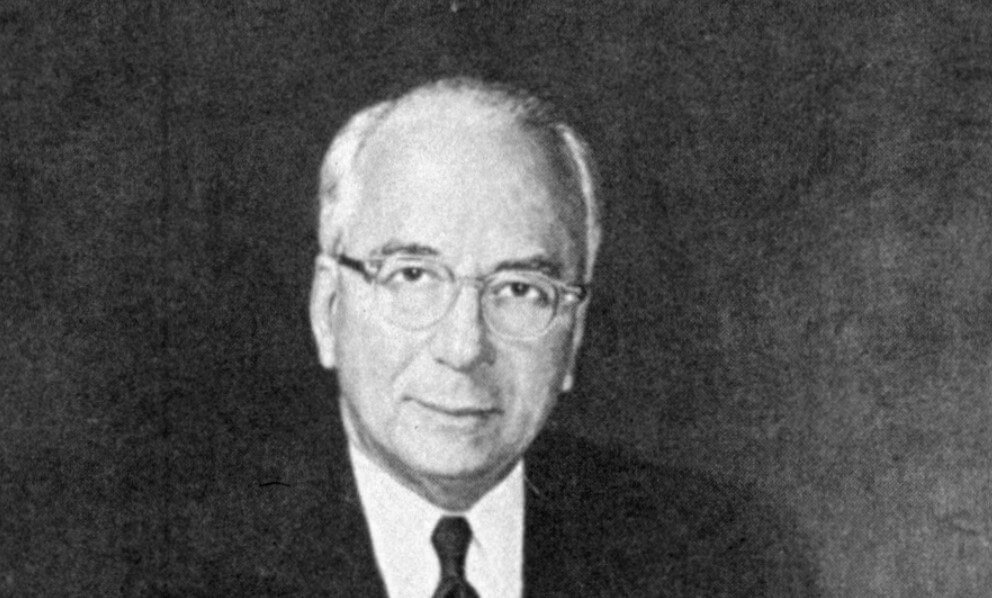Explore the gripping tale of Lewis Strauss, the influential businessman and government official, and J. Robert Oppenheimer, the brilliant physicist behind the atomic bomb. Uncover the intense conflict that arose over security clearances and Oppenheimer’s postwar role in the nuclear era.

Source: wikipedia.org
Lewis Strauss was an American businessman and public servant who lived from January 31, 1896, to January 21, 1974. He is best known for his prominent roles in the fields of nuclear energy and government service.
In the context of nuclear energy, Lewis Strauss served as the Chairman of the United States Atomic Energy Commission (AEC) from 1953 to 1958. During his tenure, he was a strong advocate for the development and promotion of nuclear power and nuclear weapons. He played a crucial role in shaping the early development of the nuclear power industry in the United States.
In addition to his work in the field of nuclear energy, Strauss also had a successful career in various business ventures, including investment banking and finance.
Biography
Lewis Strauss was born on January 31, 1896, in Charleston, West Virginia, USA. He attended the public schools in Richmond, Virginia, and later earned a Bachelor of Arts degree from the University of Virginia in 1917.
During World War I, Strauss served in the U.S. Navy as an ensign. After the war, he pursued a career in business, working in various positions in investment banking and finance. He co-founded the investment firm Kuhn, Loeb & Co., where he became a partner and gained prominence in the financial world.
Strauss’s involvement in public service began in the 1940s when he served as a special assistant to the Secretary of the Navy during World War II. He played a significant role in the production and procurement of ships and other naval assets during the war.
In 1950, President Harry S. Truman appointed Lewis Strauss as a member of the Atomic Energy Commission (AEC). The AEC was responsible for overseeing the development and regulation of nuclear energy and nuclear weapons in the United States. In 1953, President Dwight D. Eisenhower appointed Strauss as the Chairman of the AEC.
As AEC Chairman, Strauss was a staunch advocate for the peaceful uses of atomic energy, particularly the development of nuclear power for civilian applications. He believed that nuclear energy would revolutionize power generation and bring numerous benefits to society.
Under Strauss’s leadership, the AEC supported the development of civilian nuclear power plants and encouraged nuclear research and development. He also played a key role in the establishment of the Shippingport Atomic Power Station in Pennsylvania, the first commercial nuclear power plant in the United States.
However, Strauss faced criticism and controversy during his tenure. He was a proponent of atmospheric nuclear weapons testing, which generated public concern about the potential health and environmental impacts of radioactive fallout. Additionally, his management style and policy decisions led to conflicts within the AEC and strained relationships with some members of the scientific community.
In 1958, after serving as AEC Chairman for five years, Lewis Strauss resigned from his position. Despite leaving the AEC, he remained active in public affairs and continued to be involved in various business activities.
Lewis Strauss passed away on January 21, 1974, at the age of 77. He left behind a legacy as a key figure in the early development of nuclear energy and a businessman who made significant contributions to the financial and public service sectors in the United States.
What did Lewis Strauss do to Oppenheimer?
Lewis Strauss was involved in a contentious episode concerning J. Robert Oppenheimer, the renowned physicist who played a crucial role in the development of the atomic bomb during World War II. The conflict between Strauss and Oppenheimer revolved around issues related to security clearances and Oppenheimer’s role in the postwar nuclear era.
After World War II, J. Robert Oppenheimer became an influential figure in the United States’ nuclear program. He served as an advisor to the government and was appointed as the chairman of the General Advisory Committee (GAC) of the Atomic Energy Commission (AEC). As GAC chairman, Oppenheimer played a significant role in guiding the nation’s nuclear policy.
However, during the early 1950s, concerns were raised about Oppenheimer’s political views and associations with individuals who had ties to communist organizations. In 1953, Lewis Strauss, who was the Chairman of the Atomic Energy Commission at that time, led the effort to review Oppenheimer’s security clearance.
Strauss, along with other anti-communist members of the AEC, questioned Oppenheimer’s loyalty and argued that his security clearance should be revoked. They claimed that Oppenheimer’s past associations and his reluctance to endorse certain nuclear weapons development projects raised doubts about his trustworthiness with sensitive information.
The security clearance hearing, known as the Oppenheimer hearing, took place from April to June 1954. During the proceedings, Oppenheimer defended himself against the accusations and highlighted his contributions to the nation’s nuclear program, including his work on the Manhattan Project. Many prominent scientists and intellectuals, including Albert Einstein, testified in support of Oppenheimer.
In the end, the Atomic Energy Commission decided to revoke Oppenheimer’s security clearance, citing concerns about his loyalty and reliability. This decision was met with significant controversy and debate within the scientific community and the broader public.
The Oppenheimer case became a symbol of the tensions between civil liberties and national security during the early Cold War period. Many viewed it as an attempt to punish Oppenheimer for his past political associations and to stifle dissenting voices within the scientific community.
Lewis Strauss’s role in the Oppenheimer case has been a subject of criticism and controversy over the years. Some saw him as orchestrating a campaign to discredit Oppenheimer, while others believed he was genuinely concerned about national security and acted in the best interests of the country. Regardless of the motivations, the Oppenheimer affair remains a significant and contentious episode in the history of science and government relations in the United States.